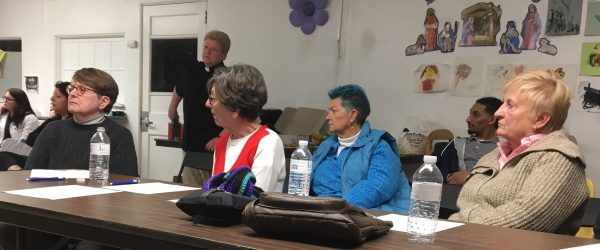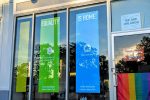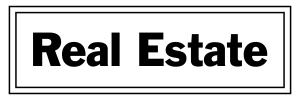Garden State Equality Hosts Gen Silent Screening & Discussion
SAGETable Event At Trinity Held To Foster Community Connection With LGBTQ Seniors
Words expressed in ‘Gen Silent,’ a 2010 documentary film, directed and produced by Stu Maddux included:
“We have a whole generation of people who don’t know who we are. That’s really sad because you’re missing out on a lot. We know a lot, and we did a lot for you. You wouldn’t be here if it weren’t for us.”
The documentary follows the lives of six LGBT seniors living in the Boston area who must choose if they will hide their sexuality in order to survive in the long-term health care system.
The film was screened Tuesday at Trinity Episcopal Church [503 Asbury Avenue] as part of Garden State Equality’s [GSE] SAGETable event. Through SAGETable, GSE wants to bring the community closer, lessen the loneliness in the lives of LGBTQ seniors and empower those to share stories, and brainstorm ideas. GSE hopes that events such as these will bring them closer to accomplishing those goals.

“I would love for viewers to take away from the documentary that LGBTQ people – regardless of age-need more support than non-LGBTQ people,” said program facilitator Bianca Chanel Mayes, GSE’s MPH Health and Wellness coordinator. “After viewing ‘Gen Silent’, GSE hopes to generate conversations around LGBTQ aging issues to other LGBTQ organizations, the healthcare industry, the general public, and older adult facilities [long-term care, etc].
“Using this documentary is a great tool to show to older adults because a lot of them that are non-LGBTQ, aren’t aware that there is a generation of people alongside them that are aging right next to them,” Mayes said.
SAGE, a national advocacy and service organization, has 30 affiliates in the United States. Its mission is to ensure there is always visibility for the elder LGBTQ community and to continue to look out for the healthcare needs of that community.

Once the film ended, Mayes, along with co-facilitator Francesca Petruzzella, a GSE intern, led a discussion centered on the documentary’s message and what the community can do to make situations better for its elder members. The group offered some insight.
Sal Susino, outreach coordinator for Prevention Resource Network, gave some insight about the healthcare industry and how some members of the community feel about the industry and its treatment of the LGBTQ community.
“Two years ago, we asked Rutgers to do a needs-assessment for us on LGBTQ health,” he said. “And tying this back to the movie – we did the assessment with different populations. Some young gay men talked a lot about things such as when they go to an STD clinic, they are shamed, they are judged and it makes them not want to be tested for HIV and STDs. Young trans and gender non-conforming people had a ton of information for us on all the things that they need to do to teach their healthcare providers about trans health. And that’s not acceptable.”
And while the LGBTQ seniors who participated in the needs-assessment expressed feelings of being comfortable with healthcare providers they’ve been using for many years, Susino said he knows a lot of LGBTQ seniors who actually are not happy.

“I know a lot of LGBTQ seniors who are afraid of going into a nursing home; I know a lot of people who I care about, and will continue to care for, who are in the same situations as those people in the film,” he said. “What struck me the most about this film is that everything that we talked about in the focus group was illustrated really well in the film.”
Graeme Davis, an occupational therapist, also related to the film’s message.
“Some of the stories that happened in this film I can attest to, through working with people in the facilities and what has happened to them,” Davis said. “As a senior myself, my concern is always about being alone and aging. I don’t have kids, and I’m in one of those brackets where I don’t have a partner, and so I wonder what is going to happen to me.”
Mayes said that when the organization shows this film, they want to broaden everyone’s minds and hopefully encourage any closeted LGBT older adults to come out of the closet and/or speak about their experiences.

“I think the younger generation should take note that the elder LGBTQ community has always been fighting for LGBTQ rights and they should look back to acknowledge those who paved the way,” Mayes said. “There’s plenty of opportunities for the younger generation to take inspiration from LGBTQ older adults. I’d love to see them volunteer with SAGE.”
To get involved with Sage locally [the NJ affiliate], contact Gordon Sauer at gordon@hudsonpride.org or call [973] 342-2360. To get involved nationally visit, the SAGE website to find out how you can volunteer at the NYC SAGE Center, host a SAGETable, become an LGBTQ older adult ambassador, or raise your voice online.
———————————————————————-
Follow the Asbury Park Sun on Facebook, Twitter and Instagram.
The Asbury Park Sun is affiliated with the triCityNews newspaper.















